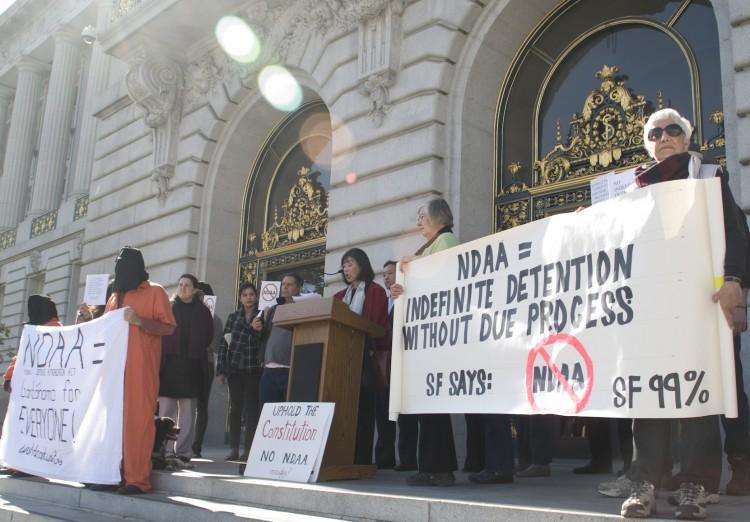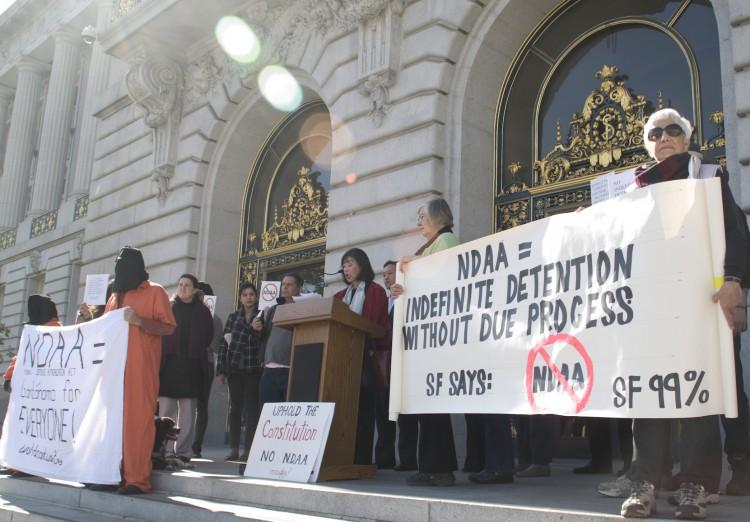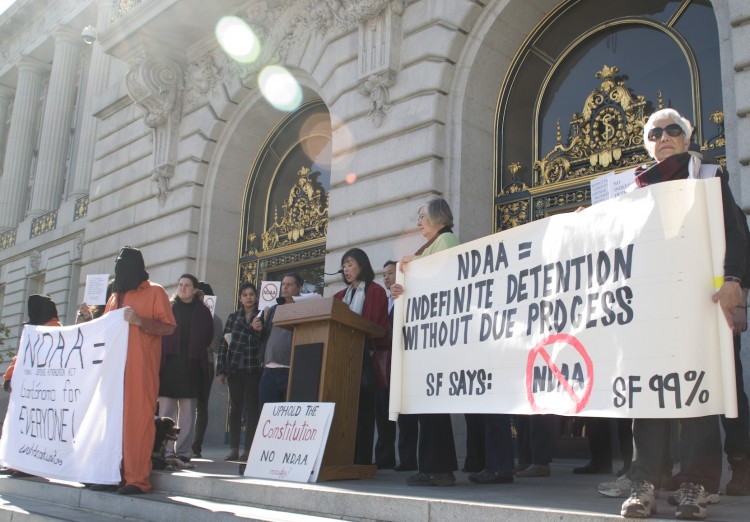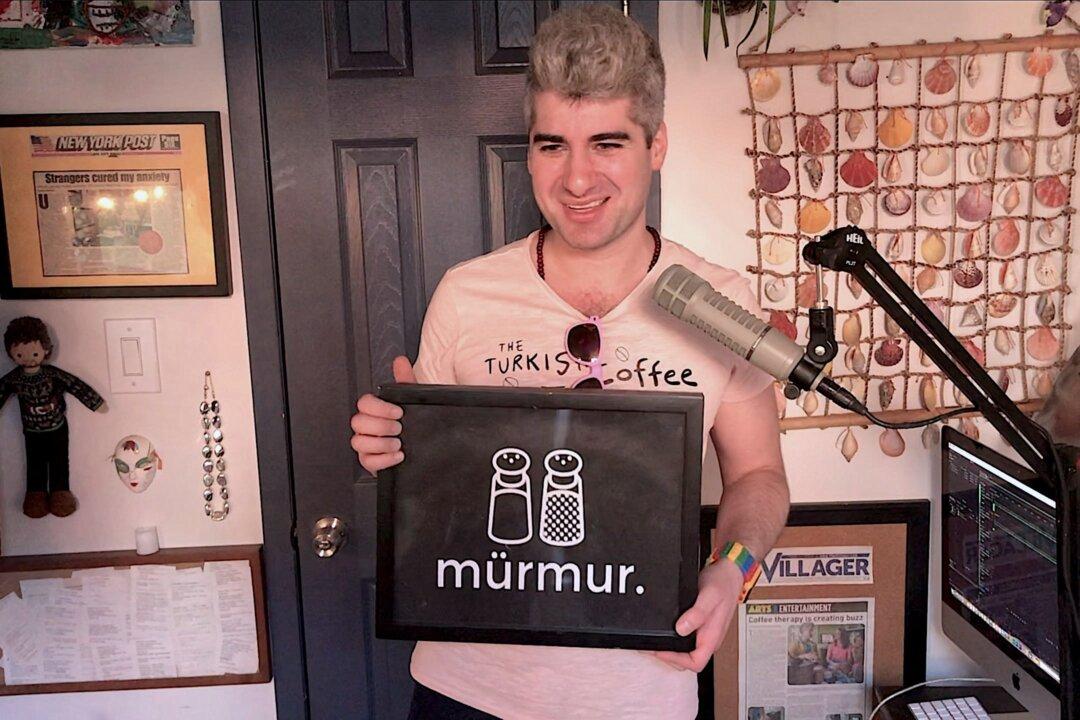SAN FRANCISCO—A resolution introduced Tuesday at the San Francisco Board of Supervisors stands in opposition to a federal defense law that many fear undermines constitutional rights by allowing the indefinite detention of U.S. citizens without charge or trial.
The National Defense Authorization Act (NDAA), passed by Congress in 2007 and renewed each year, contains provisions authorizing the U.S. military to indefinitely jail terrorist suspects and those aiding them.
“These indefinite detention provisions violate our fundamental American legal principle of the presumption of innocence. They violate our Fifth Amendment right of due process. They violate our Sixth Amendment right to fair trial,” said David Chiu, president of the board of supervisors at a rally in front of City Hall on Tuesday.
Chiu, a lawyer by training, authored the legislation that was introduced the same day at the full meeting of the Board of Supervisors.
Critics regard the provisions as unconstitutional, saying they could be applied by the government to arrest anyone, anywhere in the world, whom it deems a terrorist without charge or trial, including U.S. citizens on American soil.
Karen Korematsu, co-founder of the Fred T. Korematsu Institute, sees in the law “a terrifying parallel to the incarceration of Americans of Japanese ancestry during World War II.”
February 19th will be the 71st anniversary of President Franklin D. Roosevelt’s signing of an executive order that led to the arrest of 120,000 Japanese-Americans and Japanese immigrants who spent years in prison without a right to trial or legal assistance.






